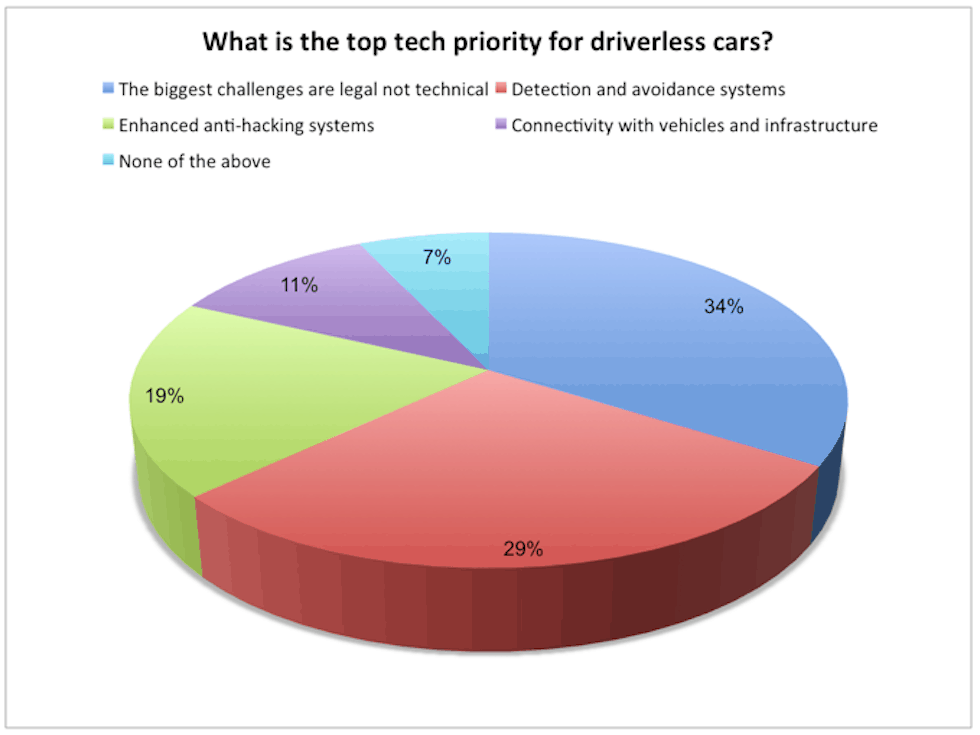 Out of 414 votes, just over a third (34%) took this view, closely followed by 29% who thought detection and avoidance were the biggest technological hurdles to overcome in vehicle autonomy.
Out of 414 votes, just over a third (34%) took this view, closely followed by 29% who thought detection and avoidance were the biggest technological hurdles to overcome in vehicle autonomy.
A total of 78 votes (19%) were cast in favour of enhanced anti-hacking systems, and 44 votes (11%) took the view that connectivity with vehicles and infrastructure is key to autonomy.
The remaining 7% thought the challenges to vehicle autonomy remain elsewhere, opting instead for the ‘None of the above’ option.
What do you think are the greatest barriers to vehicle autonomy? Let us know by commenting below.





Swiss geoengineering start-up targets methane removal
No mention whatsoever about the effect of increased methane levels/iron chloride in the ocean on the pH and chemical properties of the ocean - are we...